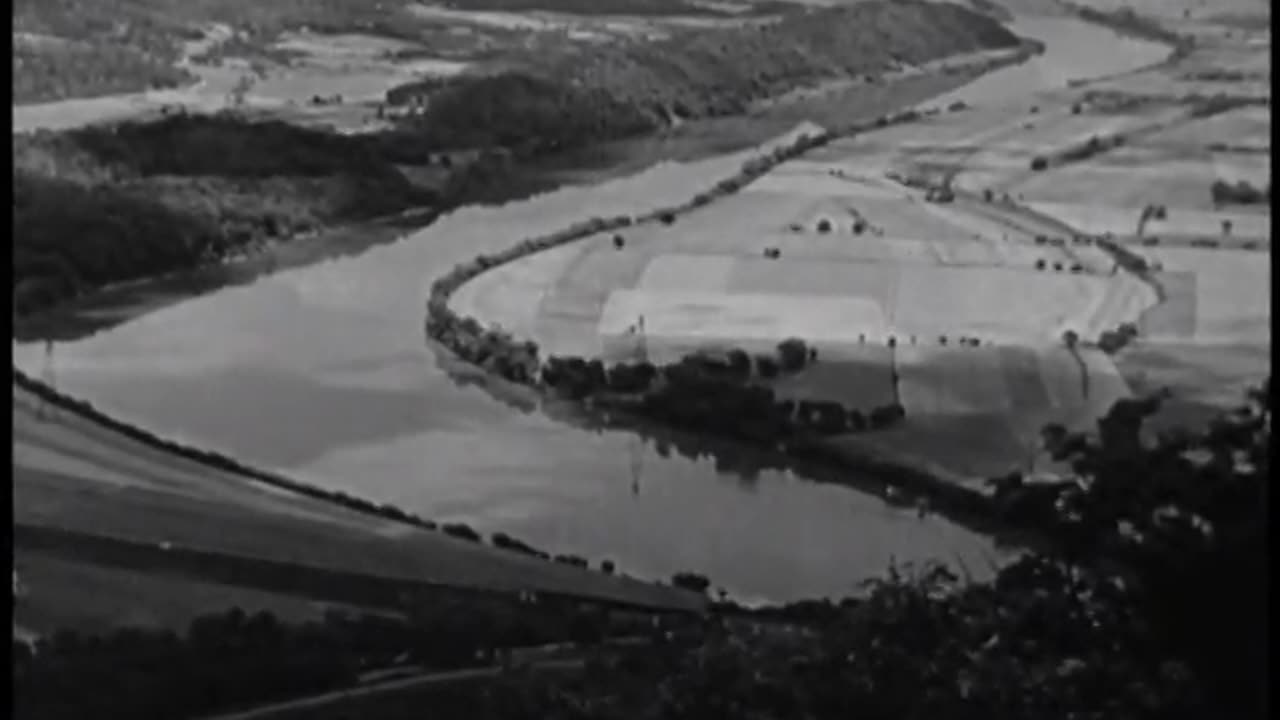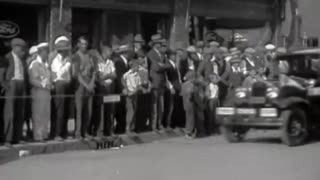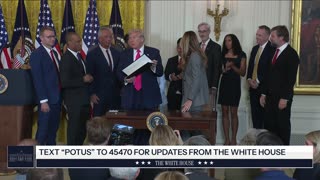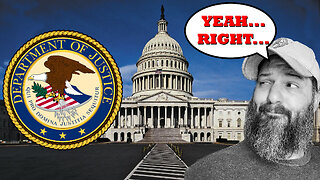Premium Only Content

The Land
Directed by Robert Flaherty, "The Land" is a powerful 45-minute documentary from 1942 that examines the dire state of American agriculture during the Great Depression, particularly focusing on the consequences of a century of cotton overproduction. Created just as the United States entered World War II, the film was not released at the time due to concerns that its stark portrayal of rural poverty and agricultural collapse could be exploited by enemy propaganda. Instead, it features a continuous musical score by Richard Arnell, which, alongside Flaherty's poetic imagery, conveys the film's narrative without spoken dialogue, consistent with his roots in silent filmmaking:
Dust Bowl and Environmental Devastation: The film opens with haunting visuals of the Dust Bowl, showing eroded landscapes, dust storms, and the barren fields left in the wake of unsustainable farming practices, vividly illustrating the environmental toll of overproduction.
Indigent Farmers and Extreme Poverty: It then shifts to the human impact, depicting impoverished farmers struggling to survive. A particularly poignant segment focuses on a family living in a dilapidated shack, eking out an existence amidst extreme poverty, yet continuing to bear children in these dire conditions, reflecting both resilience and desperation.
Mass Migration to California: The documentary captures the mass exodus of farmers and laborers to California, driven by the hope of finding work. However, the imagery starkly contrasts this hope with reality, showing the overcrowded conditions and scarcity of jobs, a narrative familiar from John Steinbeck's "The Grapes of Wrath."
Ironic Conclusion: The film ends on an ostensibly upbeat note with scenes of modern threshing machines efficiently harvesting crops, symbolizing technological progress. Yet, this conclusion carries a bitter irony, as these machines displace even more laborers, exacerbating unemployment rather than solving it, a subtle critique of unchecked mechanization.
Flaherty's choice to forgo dialogue, relying instead on the evocative score and his masterful visual storytelling, enhances the film's emotional and poetic resonance, though it also leaves viewers longing to hear the voices of the struggling farmers themselves. "The Land" stands as both a historical document of agricultural decline and a cinematic meditation on the human cost of economic and environmental mismanagement.
-
 5:53
5:53
Archival Moments
6 months agoTwenty Millionth Ford: Rochester, Owatonna, Fairmont, St. Paul, Minneapolis, and Morris, Minnesota
152 -
 30:28
30:28
The White House
6 hours agoPresident Trump and the First Lady Participate in an Executive Order Signing
20.9K17 -
 1:13:56
1:13:56
DeVory Darkins
4 hours agoNewsom SUFFERS MAJOR SETBACK after Trump revokes 17,000 Commercial Drivers Licenses
145K59 -
 1:07:32
1:07:32
Timcast
5 hours agoDemocrats CAUGHT Framing Trump On Epstein, Leaked Emails Show Journalist COLLUSION :+1: 1
175K192 -
 LIVE
LIVE
The Bold Lib
2 hours agoBOLDCHAT: Moms For Liberty | Free Speech w/ANGELA BELCAMINO
62 watching -
 2:11:09
2:11:09
Steven Crowder
7 hours ago🔴 Just Release the Damn Epstein Files - End It Once and For All
527K369 -
 10:06
10:06
VSOGunChannel
4 hours ago $1.26 earnedCongress Tells ATF to Stop Doing the National Firearms Act
18K1 -
 30:40
30:40
The Boomer Effect
19 hours agoNo More Beardos
13K3 -
 1:08:00
1:08:00
Sean Unpaved
4 hours agoMike Vrabel Has Restored The Patriot Way! | UNPAVED
30.1K4 -
 2:04:53
2:04:53
Side Scrollers Podcast
6 hours agoHasan Piker Goes FULL Propaganda + Kirsche & Craig Make “The List” + More | Side Scrollers
31.3K2